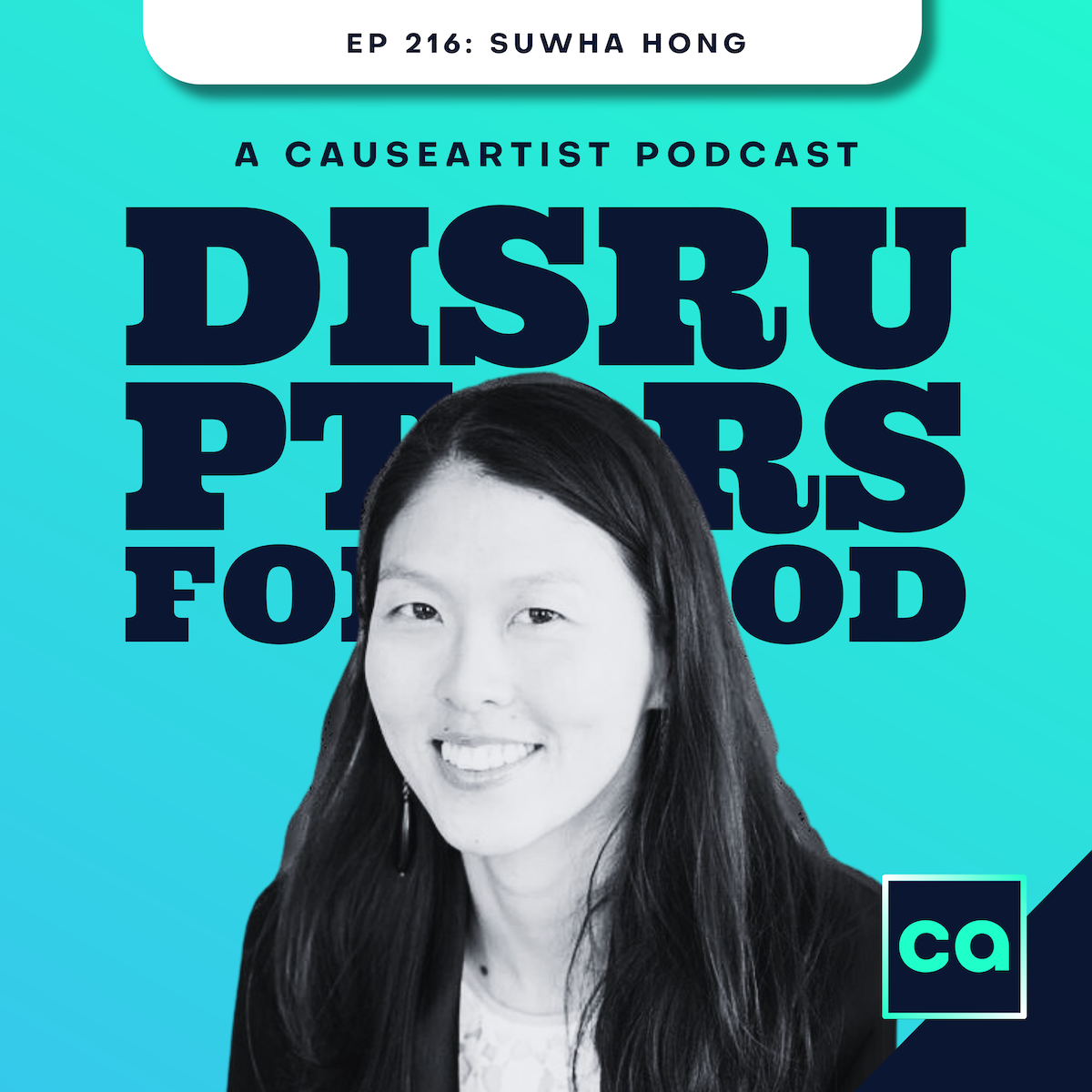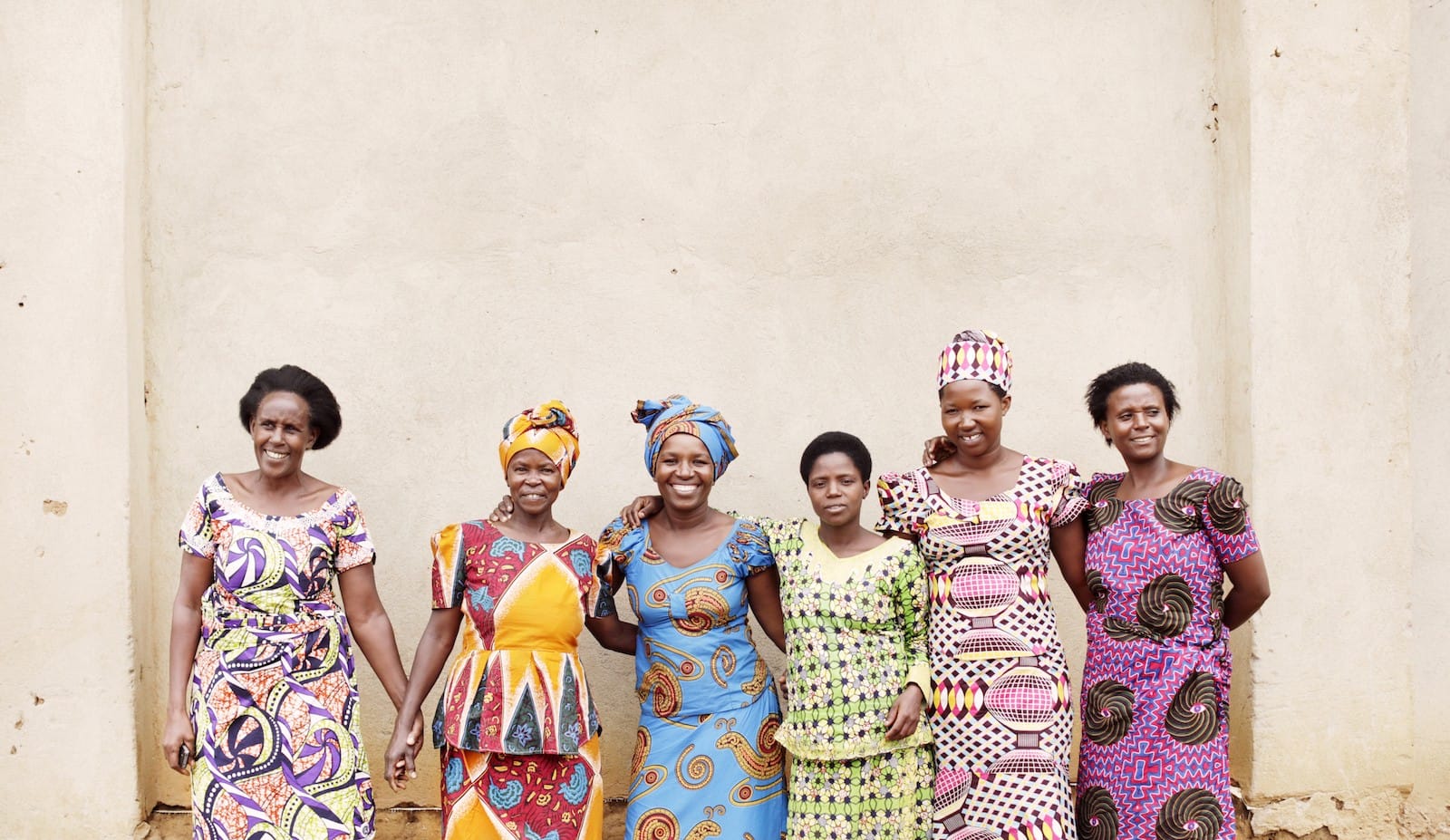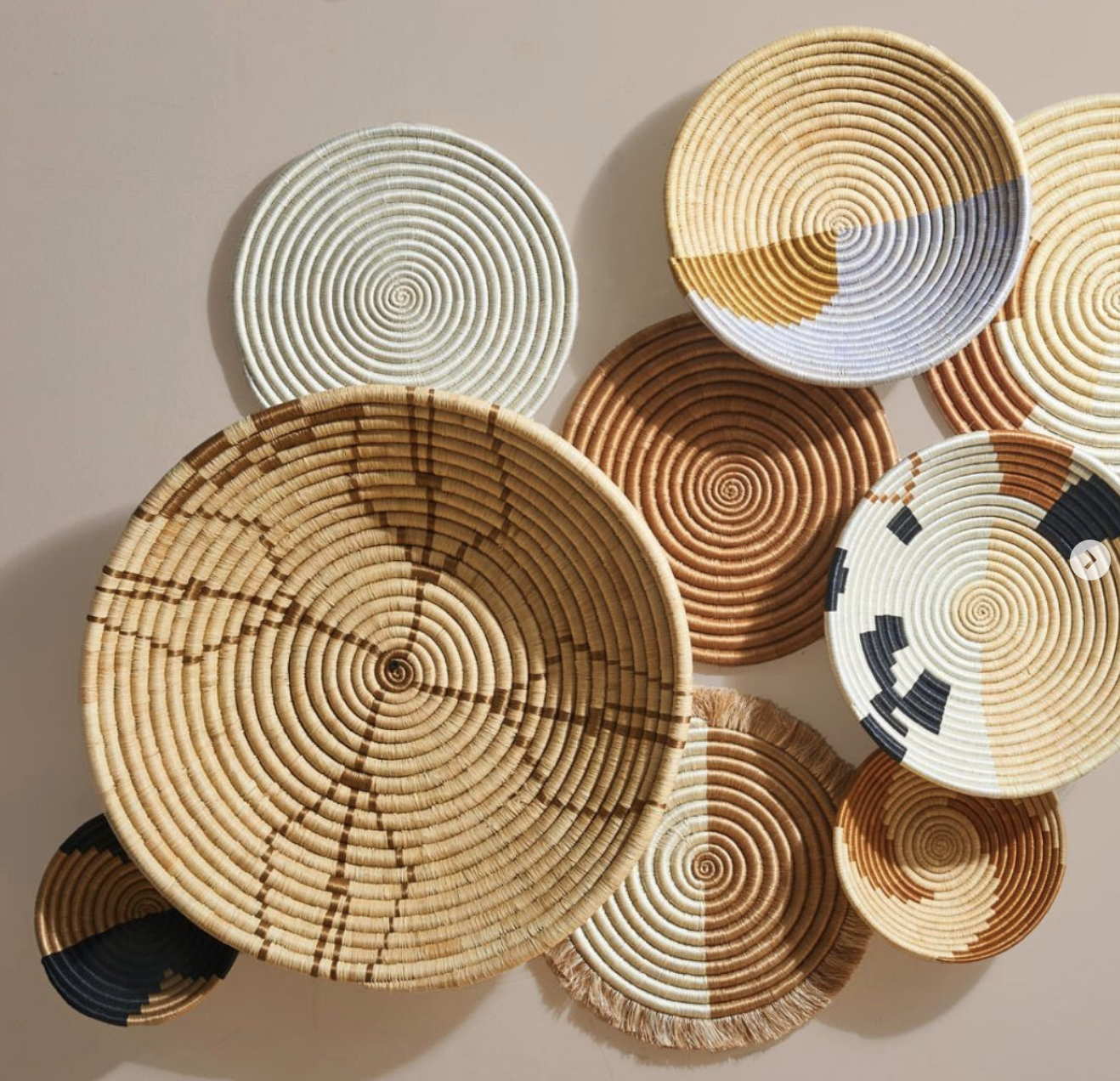In episode 216 of the Disruptors for GOOD podcast, I had the pleasure of speaking with Suwha Hong, CEO of Indego Africa, on empowering female artisans with vocational skills, business acumen, and crucial access to global markets, transforming them into self-sufficient entrepreneurs.
- Subscribe on Apple Podcasts
- Subscribe on Spotify
- Subscribe on Amazon Music
Since its inception in 2007, Indego Africa has been at the forefront of fostering the creation, growth, and sustainability of women-owned businesses across Africa.
With a focus on empowering female artisans, Indego Africa equips its partners with vocational skills, business acumen, and crucial access to global markets, transforming them into self-sufficient entrepreneurs.

A Commitment to Women-Owned Businesses
Indego Africa’s mission revolves around supporting women in their journey to financial independence and entrepreneurship.
Currently, the organization partners with over 23 independent, artisan-owned businesses spread across Rwanda, Ghana, and various refugee camps.
These partnerships are not just about economic support; they are about creating sustainable businesses that positively impact entire communities.

Education Programs: Building the Foundation for Success
Education is at the heart of Indego Africa’s mission. Through customized business, leadership, and vocational training programs, artisans gain the knowledge and tools necessary to run and scale their own businesses.
These programs are tailored to meet the unique needs of each community, ensuring that women can seize long-term economic opportunities.
This commitment to education opens doors not only for the women involved but also for their families and the broader community.
Market Access: Connecting Artisans to Global Consumers
One of the key pillars of Indego Africa’s work is providing artisans with access to global markets. By fostering long-term, transparent relationships, the organization ensures that artisans receive fair wages for their work.
Using locally sourced, natural materials, these artisans create heirloom-quality products that blend traditional African craftsmanship with modern design.
This approach not only preserves cultural heritage but also meets the demands of contemporary consumers.

Local and Sustainable Practices
Indego Africa is deeply committed to sustainability. By sourcing natural fibers and materials from local markets and farms, the organization ensures that its production processes are environmentally responsible.
When local sourcing is not possible, materials are sourced consciously, with a priority on pan-African trade, quality, and sustainability.
This commitment to local and sustainable practices underscores the durability and environmental responsibility of Indego Africa’s products.
Celebrating Craftsmanship: Honoring Heritage and Innovation
At Indego Africa, craftsmanship is more than a skill; it’s a celebration of heritage. Each product, whether it’s a woven basket or a hand-carved piece of wood, is crafted using time-honored techniques passed down through generations.
By collaborating with artisan partners, Indego Africa creates products that not only showcase the artisans’ talent but also bridge the gap between traditional artistry and modern design.
Transparent and Fair Partnerships
Indego Africa’s approach to partnership is rooted in transparency and fairness. The artisans work with, not for, the organization.
Together, they determine fair pricing and ensure that artisans have the resources needed to deliver beautifully crafted products to consumers worldwide.
This collaborative approach fosters trust and mutual respect, which are essential for long-term success.

Long-Term Impact: Transforming Communities
Indego Africa’s impact extends far beyond the individual artisans. The organization’s investment in education and market access has led to significant, measurable results.
For instance, 90% of partners report an increase in income since partnering with Indego Africa, while 97% believe the skills they’ve gained will help them earn income in the future.
Moreover, there has been a twofold increase in artisans who have started new side businesses outside their cooperative since 2021, demonstrating the far-reaching effects of Indego Africa’s support.
A Vision for the Future
What began as a model to uplift women in post-genocide Rwanda has evolved into a broader mission to empower women, youth, and refugees across Africa.
Indego Africa believes in the potential of these individuals to achieve their dreams and become powerful engines of growth for their communities.
By providing innovative designs, advanced skills training, and access to global markets, Indego Africa is helping to shape a future where women entrepreneurs can thrive and lead the way in sustainable development.
Interview Transcript
Grant: Thank you, Suwha, for joining me today. I’m super excited to talk about your journey, Indigo Africa, its mission and vision. I started Causeartist around fashion 10 years ago, focusing on how fashion brands could solve social and economic issues through business.
Since then, social entrepreneurship has exploded across various sectors. Before we dive into Indigo Africa, could you share your career journey leading up to this point?
Suwha: Thank you so much for having me. I’m honored to be here. My journey to Indigo Africa has been quite long and winding, but it feels like all roads led me here. I grew up in New York, where my mom, an anthropologist, instilled in me a curiosity about other cultures.
This curiosity shaped my perspective as an outsider, especially during my childhood in Morningside Heights and later at a boarding school in New England.
After a traditional Northeast education, I went to law school and practiced litigation for five years, first in New York and then in Boston. I realized that while I learned a lot, I wasn’t passionate about law and decided to pivot to fashion. My husband and I moved to London, where I retrained and started my own fashion brand, Suat, which gained global distribution.
However, the 2008 market crash forced me to scale back. After five years, we moved back to New York, where I eventually became the creative director for a brand called Cynthia Steffe.
Over the last 16-17 years, I’ve worked on various sides of the fashion and commerce business, including a stint at Zola.com, which was an exciting experience in applying fashion and commerce knowledge to a tech company.
Grant: Going back to your days as a lawyer, you mentioned you found out you were a terrible lawyer. Was it a lack of passion or something else that led you to realize that?
Suwha: It was definitely a lack of interest in the law itself. I realized that to be a great lawyer, you need to be 100% passionate about it, and I just wasn’t. Many people in my law school class went straight from college without fully understanding what they were getting into.
We used to divide our class into “law lovers” and “non-law lovers,” and I was definitely in the latter group.
Grant: Let’s get into Indigo Africa. What is the mission and vision of the organization, and what drew you to become CEO and dedicate this part of your life to it?
Suwha: I reached a point in my fashion career where I felt I was losing my “why.” I wanted to work for a company or nonprofit with a purpose.
Indigo Africa stood out to me because of the beautiful products created by artisans and the potential these products had not just as items for customers but as tools for fundraising and highlighting the work of African artisans.
The more I learned about the team, the culture, and the impact, the more I was blown away.
Grant: How do you explain what Indigo Africa does, especially given its multifaceted nature? How do you pitch the organization to someone unfamiliar with it?
Suwha: At the heart of Indigo Africa is connection—connecting marginalized artisans in rural communities to the export market. We empower artisans by connecting their beautiful crafts to high-end markets, like Madison Avenue boutiques, around the world.
We do much more than what’s currently shown on our website. We’re about to launch a new site that will tell a fuller story. For example, we have collaborations with brands like Tory Burch, Urbanique, and Shinola, which help us bridge the gap between these artisans and global markets.
Grant: When you visited Rwanda and Ghana recently, what were some of the impacts you saw on the ground? How does consumerism through Indigo Africa’s platform impact these artisans’ lives?
Suwha: We offer a Small Business Incubator program that supports artisans in every way possible. We work with 17 cooperatives in Rwanda, all of which are independent businesses.
Our Rwandan team of five incredible people travels daily to these rural communities, distributing purchase orders, ensuring quality control, and providing the raw materials and training the artisans need.
The impact is profound—purchasing from Indigo Africa doesn’t just support artisans financially; it also funds vocational training, entrepreneurship mentorship, and other support systems that help these women become self-sustaining entrepreneurs.
Grant: What are the backgrounds of the artisans you work with? Are they younger or older women, refugees, or settled in one place?
Suwha: We started in Rwanda in 2007, and many of the women we work with have been with us for years. Most of them are in rural areas where weaving is a heritage craft passed down through generations.
These women are deeply connected to their craft, and it’s often one of the few sources of income available in their communities. Our impact is deep and enduring; we know every one of the 700 artisans we support by name.
Grant: When new artisans come on board, how are they onboarded? Do they go through a training process?
Suwha: Yes, new artisans go through our training path, which includes vocational training and refresher courses on running a small business. They are often recommended by current members who recognize their potential. Our goal is to provide them with the skills and support they need to thrive in the export market.
Grant: You mentioned earlier about building an e-commerce store in 2007. How has technology played a role in Indigo Africa’s growth, and what’s the next stage in its evolution?
Suwha: Technology has been a game-changer, but there’s still a lot of work to be done, especially in the rural areas we serve.
While connectivity can be an issue in these regions, the widespread availability of smartphones has made a significant difference. Even the ability to share images and videos via WhatsApp for quality control is incredibly valuable. We’re working to connect these dots and make it easier for artisans to engage in the export market.
Grant: As the new CEO, what was your approach when you first joined Indigo Africa? What were some of the challenges and learning experiences during your initial 30-60 days?
Suwha: One of our board members described it as drinking from a fire hose, which was spot on. Indigo Africa is a blend of a nonprofit and a commerce arm, and learning both sides was challenging. While the commerce side was familiar to me, the nonprofit side was a steep learning curve.
The motivations and stakeholders in the nonprofit space are different, and I had to learn how to align people around a shared mission beyond just the bottom line. I also wanted to bring some of the startup hustle mentality to the organization to maximize the potential of our beautiful handcrafted products.
Grant: Looking ahead, what are the goals for Indigo Africa over the next 5-10 years? What are you hoping to achieve?
Suwha: We’ve been a steady presence in the lives of our artisans, and I want to continue that deep impact while expanding our reach. My goal is to bring our Small Business Incubator model to more artisans in rural Africa and potentially expand into new countries. We’ve done an excellent job with deep impact; now it’s time to widen that impact.
Grant: It sounds like an exciting journey ahead. The products speak for themselves, and with your leadership, there’s so much potential for growth and scale. Best of luck to you and the team for the next decade. Thank you so much for joining me today.
Suwha: Thank you, Grant. It’s been a pleasure. I’m excited for what’s to come.







